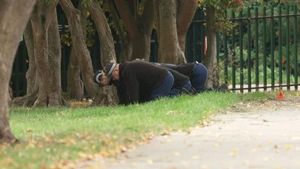The holy month of Ramadan is upon Muslims around the globe, symbolizing reflection, devotion, and fasting from dawn until sunset. This year, the Islamic Foundation has issued the Sehri and Iftar schedule for the districts of Khulna and Mymensingh for the year 2025, providing specific guidance for those observing the fast.
Beginning on Tuesday, March 4, 2025, the last time for Sehri, which refers to the predawn meal before the dawn prayer, is scheduled at 5:09 AM for Khulna. Iftar, the meal to break the fast, will be at 6:16 PM. This timing is particularly significant as it marks the daily rhythm of Ramadan for those who fast. Adhering strictly to these times is of utmost importance, enabling individuals to fulfill their religious responsibilities.
The Holy Quran emphasizes the importance of fasting during Ramadan, regarded as the third pillar of Islam, obliging every able-bodied Muslim to follow this practice. Each day's fasting begins with the Sehri meal before Fajr, the pre-dawn prayer, concluding with the Iftar meal at sunset. Consequently, knowing these timings helps believers engage meaningfully with their faith.
Mymensingh district has also released its Sehri and Iftar times, which began with the first Sehri concluding at 5:00 AM on March 2, 2025. The schedule details the timings up until the end of the month, forecasting adjustments of approximately one or two minutes each day throughout the month of Ramadan as it is divided thematically: the first ten days are considered Rahmat (blessings), the next ten days Maghfirat (forgiveness), and the final ten days Najat (salvation).
According to the Islamic Foundation, the last day of Ramadan is expected to fall on March 31, 2025, with the last Sehri end time at 4:29 AM and Iftar at 6:18 PM. Each day's schedule will guide Muslims seeking to fulfill their religious duties and capitalize on the spirit of Ramadan.
The emphasis on the correct timing for Sehri and Iftar stems from the pivotal role these moments play during Ramadan. To commemorate, Muslims recite prayers and express gratitude at both times, acknowledging the blessings of their fast and the sustenance they receive. A small yet significant prayer to recite at Iftar is, "Allahumma laka sumtu wa ala rizq-ika-aftar-tu," which translates to "Oh Allah! I fasted for You and I am breaking my fast with Your provisions." This practice reinforces the connection between the believer and their Creator.
With Ramadan structured around community, observing these times brings families and friends together, fostering unity and shared faith. Each meal becomes more than just sustenance; it symbolizes fellowship and gratitude. Gathering for Iftar breaks, families often bond over food, sharing stories from their day, enhancing the spirit of Ramadan.
For all Muslims, the Islamic Foundation's announcement about the Sehri and Iftar times serves not just as logistical information but as part of the broader experience of observing Ramadan. Each day is marked by discipline and reflection, intertwined with communal and religious activities.
With Ramadan beginning, the anticipation builds for days of fasting, prayer, and reflection, and the strict adherence to Sehri and Iftar times adds to the sacredness of this month. Hindu caregivers and minority groups are also often found observing these traditions with their Muslim counterparts, enriching the cultural fabric of the community during this spiritually significant time.
To summarize, the Sehri and Iftar timings for Khulna and Mymensingh are now available, shedding light on the daily lives of observant Muslims as they navigate through this holy month. The Islamic Foundation's efforts to provide these schedules underline their commitment to facilitating accessible religious practices, ensuring every believer can actively partake during Ramadan. Through shared observation and adherence to these times, the spirit of Ramadan continues to thrive within communities, bringing hope, unity, and transformation.



